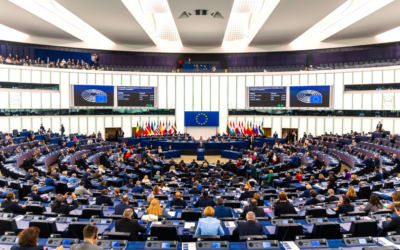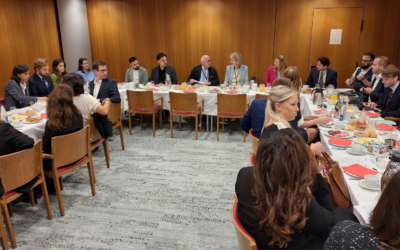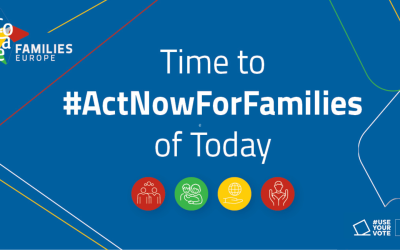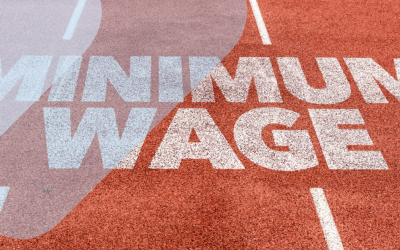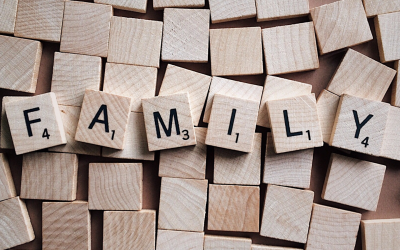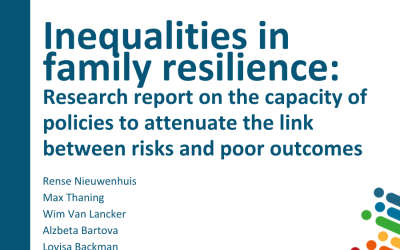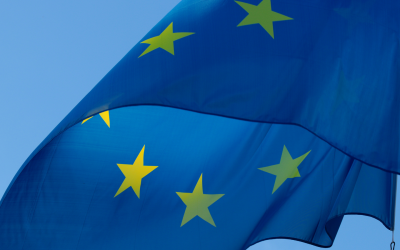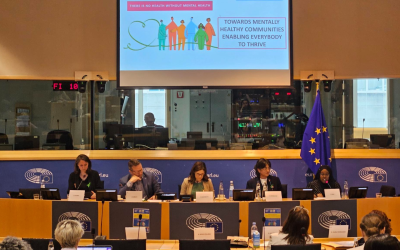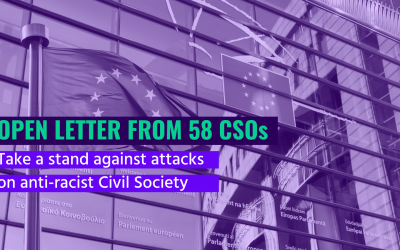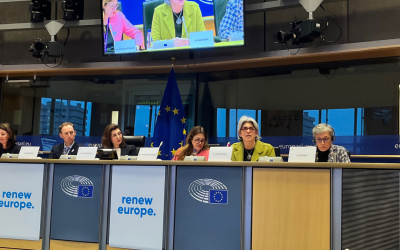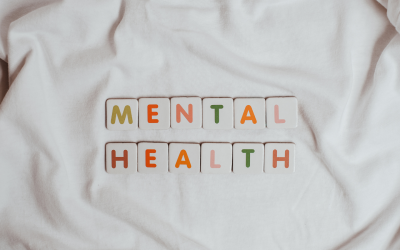On 11 March, the European Parliament called for more resources for the European Social Fund Plus post-2027 to better support the EU’s social dimension. While it calls for a strong family dimension, the European Parliament failed to include a dedicated budget of at least €20 billion for the European Child Guarantee.
Tag:
European Parliament establishes new standing committee on public health
In February 2023, Parliament approved the creation of a public health subcommittee. In December 2024, Parliament’s political group leaders decided to upgrade its status to a standing committee. The SANT Committee will deal with programmes and specific actions in the field of public health.
ECLAG invites newly elected MEPs to join the fight against child sexual abuse online
In September 2024, The European Child Sexual Abuse Legislation Advocacy Group of which COFACE is member, organised a breakfast in Strasbourg to welcome newly elected MEPs and encourage them to use their position to fight the ongoing Child Sexual Abuse Crisis affecting millions of children across Europe.
European elections in the spotlight – time to ACT NOW for families of today
On 6-9th June 2024, Europeans voted to renew the European Parliament and new Members of European Parliament (MEP) will convene for the first time in Plenary mid-July in Strasbourg, France. While the European People’s Party (EPP), European Conservatives (ECR) and Identify and Democracy Group (ID) have seen an increase in seats, the Greens and Renew Europe have had significant losses. The Socialists have maintained around the same number of seats. The biggest increase has been for the non-aligned MEPs which are a heterogenous group, yet with most of them coming from the far right.
European Child Guarantee centre stage in the Belgian presidency of the EU
On 2-3rd May 2024 in Brussels, the Belgian presidency of the EU organise a conference entitled European Child Guarantee from engagement to reality. The event had a dual objective: firstly, to give key players the opportunity to analyse the work already completed and what remains to be done to achieve the objectives set, and secondly, to provide Child Guarantee coordinators with a platform to share their knowledge in the implementation of the European Child Guarantee.
ACT NOW FOR FAMILIES OF TODAY
COFACE has the ambition to shape together a strong social Europe fit for families and foster a European society that is more inclusive, offers equal opportunities and brings everyone forward.
In preparation of the next European elections on 6-9th June 2024, here are ten specific actions we would like to see integrated in the programme of the European Union.
Minimum wages: Non-compliance and enforcement across EU Member States
In 2020, the European Parliament requested the European Commission to carry out a pilot project on the “Role of the minimum wage in establishing the Universal Labour Guarantee”. Eurofound was entrusted with the implementation of this pilot project (2021–2023). This report examines non-compliance with minimum wage legislation and how Member States approach enforcement.
European Parliament report advocates social inclusion amidst crisis for children and families
On the morrow of the UN International day for the Rights of Children, the European Parliament adopted an important text for children and their families. The Own Initiative report on Reducing inequalities and promoting social inclusion in times of crisis for children and their families received 386 votes in favours for 87 against and 141 abstention.
rEUsilience new working paper: Inequalities in family resilience
This research report focuses on the capacity of policies to attenuate the link between risks and poor outcomes.
As “resilience” is increasingly used in European policy circles, it is important to acknowledge structural inequalities that are present in the capacity of families to be resilient.
New EU rules needed to make digital platforms less addictive
Members of the European Parliaments raise alarm over the addictive design features of certain digital services and call for fostering ethical design by default. MEPs believe that recent rules such as the Digital Services Act (DSA) and the Artificial Intelligence Act are not enough to regulate the issue of addictive design.
Austria’s implementation of the EU Work-Life Balance Directive: COFACE member KFÖ’s key takeaways
Alfred Trendl, President of the Catholic Family Association Austria (KFÖ), expressed both approval and concern regarding the government’s implementation of the EU directive aimed at strengthening work-life balance and partnership. While applauding the doubling of the family time bonus to 1,480 euros per month, Trendl voiced criticism of the government’s decision to cut two months of leave for families where only one parent takes parental leave. He argued that this infringes upon parental choice in childcare arrangements.
First rEUsilience working paper “Family profiles: Risks, resources, and inequalities”
rEUsilience, a Horizon Europe research initiative spanning from 2022 to 2025, is a collaborative effort involving renowned universities such as Oxford, Stockholm, Barcelona, Warsaw, KULeuven, and Zagreb, with COFACE as an integral partner. The first working paper from rEUsilience maps how resilience is being used in the EU policy discourse, noting how there is a lack of a clear conceptualisation of how it applies to families.
European Parliament organises “Beyond Growth” Conference
On the 15th, 16th and 17th of May, the 5th edition of the « Beyond Growth » conference was held in the European Parliament in Brussels.
Many recommendations and ideas have been put forward by speakers during the conference, covering a wide variety of issues ranging from food, energy, oceans, economics, digitalisation and climate.
COFACE Advocates for Mental Health at the European Parliament
During the fourth edition of the European Mental Health Week conference, COFACE Families Europe’s director, Elizabeth Gosme, emphasized the significance of fostering mentally healthy communities. With a focus on promoting well-being and resilience, she shared valuable insights on creating environments that support mental health and shed light on the key factors that contribute to a thriving community, from a family perspective.
ENAR Open Letter to EU institutions: Take a Stand Against Attacks on Anti-Racist Civil Society
The European Network Against Racism (ENAR) along with 50+ other civil society organisations have written an open letter to European Commission President and European Parliament President condemning attacks on anti-racist civil society organizations in Europe. The letter highlights the importance of protecting and supporting anti-racist efforts and organisations, especially in the midst of rising hate speech and racism in society.
Taking action to achieve Gender Equality: COFACE’s President speaks at the European Parliament
COFACE and its members in Europe work to address the needs of all families and boost gender equality. In February 2023, our president Annemie Drieskens delivered a speech at the European Parliament during the “Empowering Women Now” event organised by Renew Europe.
Pandemic scar: European Parliament asks to address the consequences on mental health of children
European lawmakers voted in favour of a non-binding report calling for increased spending on education and culture in order to combat the decline in the mental health of children and young people.



